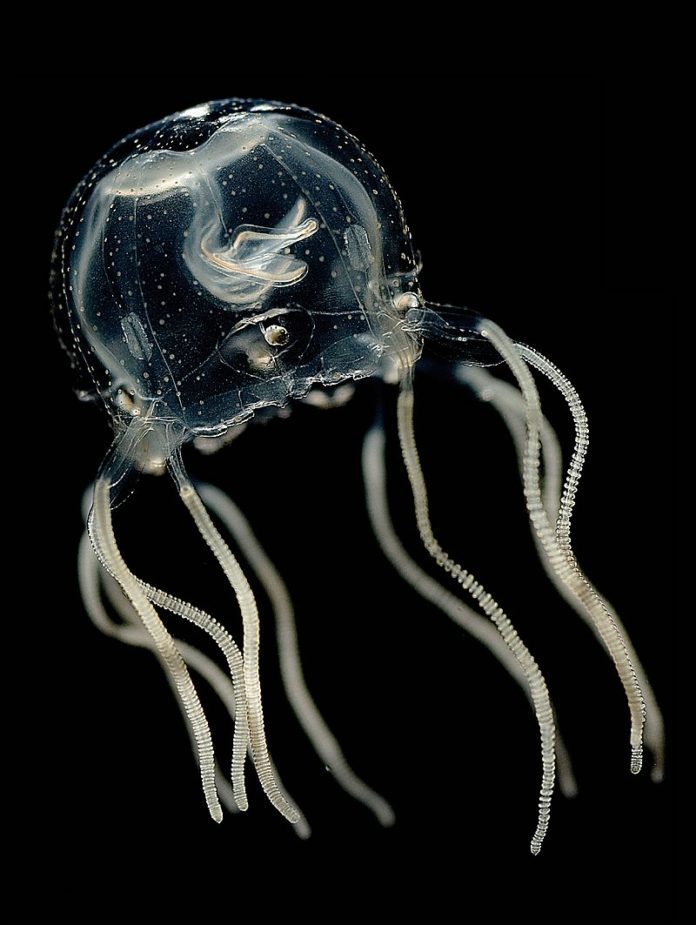The key to curing memory loss in humans may come from a creature that doesn’t have a brain at all: the jellyfish. Generally speaking, jellyfish are little more than gelatinous conglomerations of neurons. While we humans have close to one hundred billion neurons in our brains alone, the Caribbean box jelly has one thousand total. Given these statistics, it is reasonable to assume that jellyfish are incapable of even simple cognitive functions, much less memory and associative learning. A recent study published in the journal Current Biology, however, tells us that these unassuming jellies are capable of much more than initially thought.
To study jellyfishes’ associative learning capabilities, researchers chose to simulate the conditions of an underwater mangrove environment for Caribbean box jellyfish. In these environments, the murkiness or clarity of the water changes day by day, diminishing the contrast between mangrove roots and the surrounding water. This means that, in order to avoid unpleasant collisions, the jellyfish must repeatedly relearn how sharply the roots will appear in comparison to the environment around them. To recreate this environment, researchers lined the inside of buckets with various gradients of dark and light lines, representing mangrove roots in a range of water clarities. As expected, the box jellies initially collided with the areas where the difference between light and dark was less pronounced. Within 5-8 minutes, however, the jellies became largely successful at avoiding bumping into the “roots.” For context, this is roughly equivalent to the number of trial-and-error attempts a mouse must make–a creature which does have the advantage of a brain.
The findings of this study suggest that jellyfish possess short term memory and advanced learning abilities, including learning from mistakes and behavior modification. As jellyfish were one of the first creatures to diverge from other multicellular life, an understanding of their cognitive abilities could help scientists to trace the origins and evolution of learning across the animal kingdom. More than this though, researchers hope to use the jellyfish to identify which cells are involved in learning and memory. This could allow them to better understand and possibly counteract memory loss in neurological diseases like dementia, the seventh leading cause of death globally. Despite not having one of their own, jellyfish could enable enormous leaps in our understanding of brains and cognition throughout the living world.
